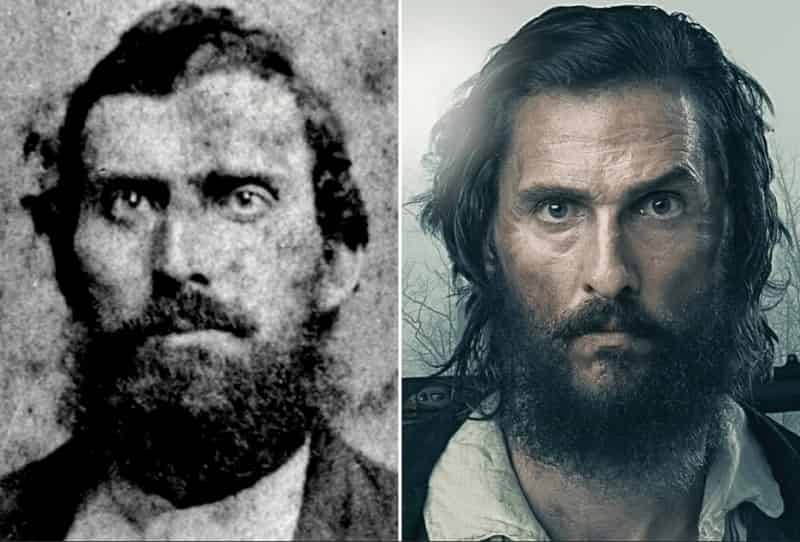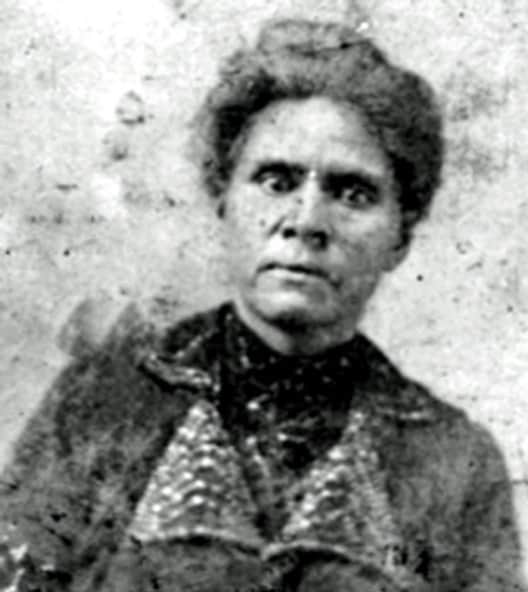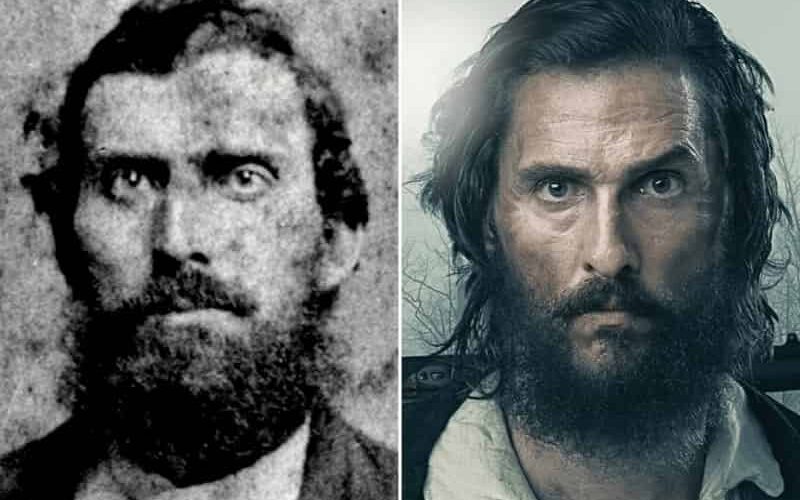Newton Knight and the Legend of the Free State of Jones

Newton Knight was born in 1837 near the Leaf River in Jones County, Mississippi. Back then, the area was filled with tall pine trees, wild animals like wolves and panthers, and plenty of natural beauty.
It was often called a “land of milk and honey.” Knight grew up working hard and later became a farmer. In 1858, he married Serena Turner, and they started a farm in Jasper County. They grew crops like corn and sweet potatoes, raised animals, and hunted for food. Newt was a religious man who cared deeply for his family. Over time, he became a legend.
The Start of the Civil War
In 1861, the Civil War began after several southern states, including Mississippi, left the United States to form the Confederacy. Wealthy landowners wanted to keep slavery, but many poorer farmers in Jones County didn’t agree with this war. In fact, slavery wasn’t as common in Jones County, where only 12% of the population was enslaved, compared to other parts of Mississippi.
Newt Knight and many of his neighbors didn’t want to fight for the Confederacy. They felt it wasn’t their war. However, people who didn’t support the Confederacy were often called traitors and faced threats or violence. Under pressure, Newt joined the Confederate Army in 1861, but his heart wasn’t in it. After a short time, he returned home because his father was dying.
The “Rich Man’s War, Poor Man’s Fight”
In 1862, Newt rejoined the army with his friends from Jasper County, hoping to serve close to home. However, the Confederate government passed a law allowing wealthy plantation owners to avoid fighting if they owned 20 or more enslaved people. This made many poorer soldiers, like Newt’s friend Jasper Collins, very angry. Collins famously said, “This is a rich man’s war and a poor man’s fight,” before leaving the army.
Newt also decided to leave. He went AWOL (absent without leave) and made a dangerous trip back to Jones County. When he arrived, he found his community in terrible shape. Many men were away at war, leaving women and children to struggle. Confederate officials were also taking food, animals, and supplies from families, making life even harder.
The Knight Company
After seeing the suffering in his community, Newt decided to take a stand. In 1863, he formed a group of about 125 men called the Knight Company. These men, from counties like Jones and Jasper, hid in the swamps and fought back against the Confederate forces. They used guerrilla tactics, surprising their enemies and disappearing into secret hideouts like “Devil’s Den.” They even used cattle horns to communicate.
Newt became the leader of the Knight Company. He was tall, strong, and skilled with his shotgun. He worked with both White and Black people, including an enslaved woman named Rachel, who helped supply the group with food and information.
The Free State of Jones
By 1864, the Knight Company had gained attention from Confederate leaders. There were even rumors that Jones County had declared independence from the Confederacy, calling itself the “Free State of Jones.” Although no official documents exist, it’s clear that the Confederate government lost control of the area for a time.
The Confederates sent Colonel Robert Lowry and his troops to stop the rebellion. They used harsh methods, including hunting the Knight Company with bloodhounds. Several members of the group were caught and hanged, but Newt escaped. Despite these efforts, the Knight Company continued to resist until the war ended in 1865.
Life After the War
When the Civil War was over, Newt Knight didn’t stop fighting for justice. He worked with the U.S. Army to distribute food to starving families in Jones County. He also helped rescue Black children who were still being held in slavery.
During the Reconstruction era (1867–1876), Newt supported the Republican Party, which aimed to protect the rights of African Americans. He even became a deputy U.S. Marshal. However, as violence and racism grew, many of these gains were lost. By 1875, groups like the Ku Klux Klan had made it nearly impossible for African Americans to vote.
Newt’s Family and Legacy
After Reconstruction, Newt returned to his farm. He lived openly with Rachel, the formerly enslaved woman who had helped him during the war. This was a bold decision in a time when interracial relationships were dangerous. Newt and Rachel had children together, and he continued to speak out against injustice.

Newton Knight passed away in 1922 at the age of 85. Despite Mississippi laws that separated White and Black people even in death, Newt was buried next to Rachel on his farm. His tombstone reads, “He Lived for Others,” a fitting tribute to his life of courage and defiance.
Why Newton Knight’s Story Matters
Newton Knight’s actions during the Civil War and afterward show how one person can stand up against injustice. He wasn’t fighting for glory or wealth—he was fighting for his family, his neighbors, and what he believed was right. The story of the Free State of Jones reminds us that even in the darkest times, there are people who choose to do the right thing.
The Impact of the Free State of Jones
The story of Newton Knight and the Free State of Jones challenges the traditional narrative of the Civil War, which often portrays the South as united in its fight to preserve slavery. In reality, many poor farmers in the South, like Newt and his neighbors, saw the Confederacy as a government that served the wealthy at their expense.
Knight’s rebellion highlighted the deep divisions within the South and showed that not everyone supported the Confederate cause. His stand against oppression—both from the Confederate government and the social system that upheld slavery—continues to inspire people today.
A Symbol of Defiance
Newton Knight’s life has become a symbol of defiance against inequality and oppression. He didn’t fit neatly into the categories of his time. While he was a White man, he openly opposed the Confederacy, worked alongside Black people, and even formed a family with Rachel, a formerly enslaved woman. This made him a controversial figure during his life and in the years that followed.
His legacy is not without debate. Some view him as a hero who stood up for the poor and the oppressed, while others see him as a divisive figure. Regardless of differing opinions, his story remains a powerful reminder of how individuals can resist injustice, even when it’s risky.
Courage in the Face of Injustice
Newt’s willingness to resist the Confederate government shows the importance of standing up for what’s right, even when it’s unpopular or dangerous.
Unity Across Differences
The Knight Company’s cooperation between White and Black people during the war was rare for its time. It reminds us that working together, despite differences, can lead to meaningful change.
The Power of Leadership
Newt’s ability to lead and inspire others helped create a movement that resisted Confederate oppression. His leadership turned a group of desperate men into a force that challenged the status quo.
Keeping the Story Alive
The story of the Free State of Jones gained renewed attention with the 2016 movie Free State of Jones, starring Matthew McConaughey as Newton Knight. While the movie dramatized parts of his life, it introduced Newt’s story to a broader audience and sparked interest in this lesser-known chapter of history.
For historians, Newt Knight’s story is a window into the complex social and political landscape of the Civil War era. It reveals the struggles of ordinary people caught between powerful forces and highlights the resilience of those who refused to give up.
Newton Knight’s life is a testament to the power of resistance, compassion, and standing up for one’s beliefs. From leading the Knight Company against the Confederacy to living openly with Rachel despite the risks, Newt’s actions were bold and defiant. His story challenges us to think about the sacrifices we are willing to make for justice and equality.
The Free State of Jones remains a powerful example of what can happen when ordinary people choose to fight against injustice. Newton Knight’s legacy continues to inspire those who believe in fairness, equality, and the courage to do what’s right—even when it’s not easy.
FAQ: Newton Knight and the Free State of Jones
1. Who was Newton Knight?
Newton Knight was a farmer from Jones County, Mississippi, who became famous for leading a rebellion against the Confederate government during the Civil War. He formed the Knight Company, a group of deserters and local residents who opposed the Confederacy’s exploitation of poor farmers.
2. What was the Free State of Jones?
The Free State of Jones refers to a region in Mississippi, particularly Jones County, where Newt Knight and his followers resisted Confederate control. For a time in 1864, the Confederate government in the area was effectively overthrown, and the Knight Company declared independence from the Confederacy.
3. Why did Newton Knight oppose the Confederacy?
Knight and many others in Jones County were against the Confederacy because they believed it primarily served the interests of wealthy slaveowners. The Confederate “Twenty-Negro Law,” which exempted wealthy plantation owners from military service, angered poor farmers like Knight, who saw it as unfair.
4. How did Newton Knight form the Knight Company?
After deserting the Confederate Army, Knight returned to Jones County, where he organized a group of about 125 men. These men, known as the Knight Company, included fellow deserters and local farmers. They used guerrilla warfare tactics to resist Confederate forces.
5. Did the Free State of Jones officially secede from the Confederacy?
Although there is no formal documentation of secession, many accounts suggest that Jones County operated as an independent entity for a time, raising the United States flag and refusing to support the Confederacy.
6. What role did Rachel play in Newt Knight’s life?
Rachel was an enslaved woman who supported Newt Knight and the Knight Company by providing food, shelter, and intelligence. After the war, Rachel and Newt formed a family, a controversial decision in the racially segregated South. Their relationship symbolized Newt’s rejection of racial and social norms.
7. What happened to Newton Knight after the Civil War?
After the war, Knight worked as a commissioner distributing food to the poor and as a deputy U.S. Marshal during Reconstruction. He remained an outspoken supporter of civil rights and the Republican Party. He spent his later years on his farm with Rachel and their children.
8. Is the story of the Free State of Jones true?
Yes, the story is true, although some details have been romanticized or debated. Historians agree that Newton Knight led a rebellion in Jones County and that the area resisted Confederate control. The events have inspired books and films, including the 2016 movie Free State of Jones.
9. What challenges did the Knight Company face?
The Knight Company faced brutal retaliation from Confederate forces, including raids, hangings, and bloodhound attacks. Despite this, they managed to survive and continue their resistance by hiding in swamps and relying on support from local communities.
10. What is Newton Knight’s legacy?
Newton Knight’s legacy is one of defiance against injustice and courage in the face of overwhelming odds. He is remembered as a complex figure who stood against the Confederacy, supported civil rights, and challenged racial norms of his time.
11. Where is Newton Knight buried?
Newton Knight is buried alongside Rachel on his farm in Jasper County, Mississippi. Defying the state’s segregation laws, he chose to be interred next to her as a testament to their bond and his rejection of racial division.
12. Why is the Free State of Jones significant today?
The Free State of Jones symbolizes resistance against oppression and the power of ordinary people to stand up for justice. It highlights the divisions within the South during the Civil War and serves as a reminder of the importance of equality and civil rights.

